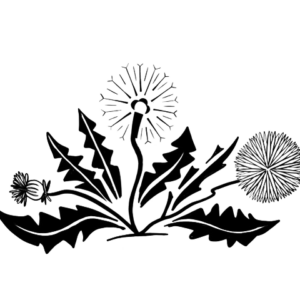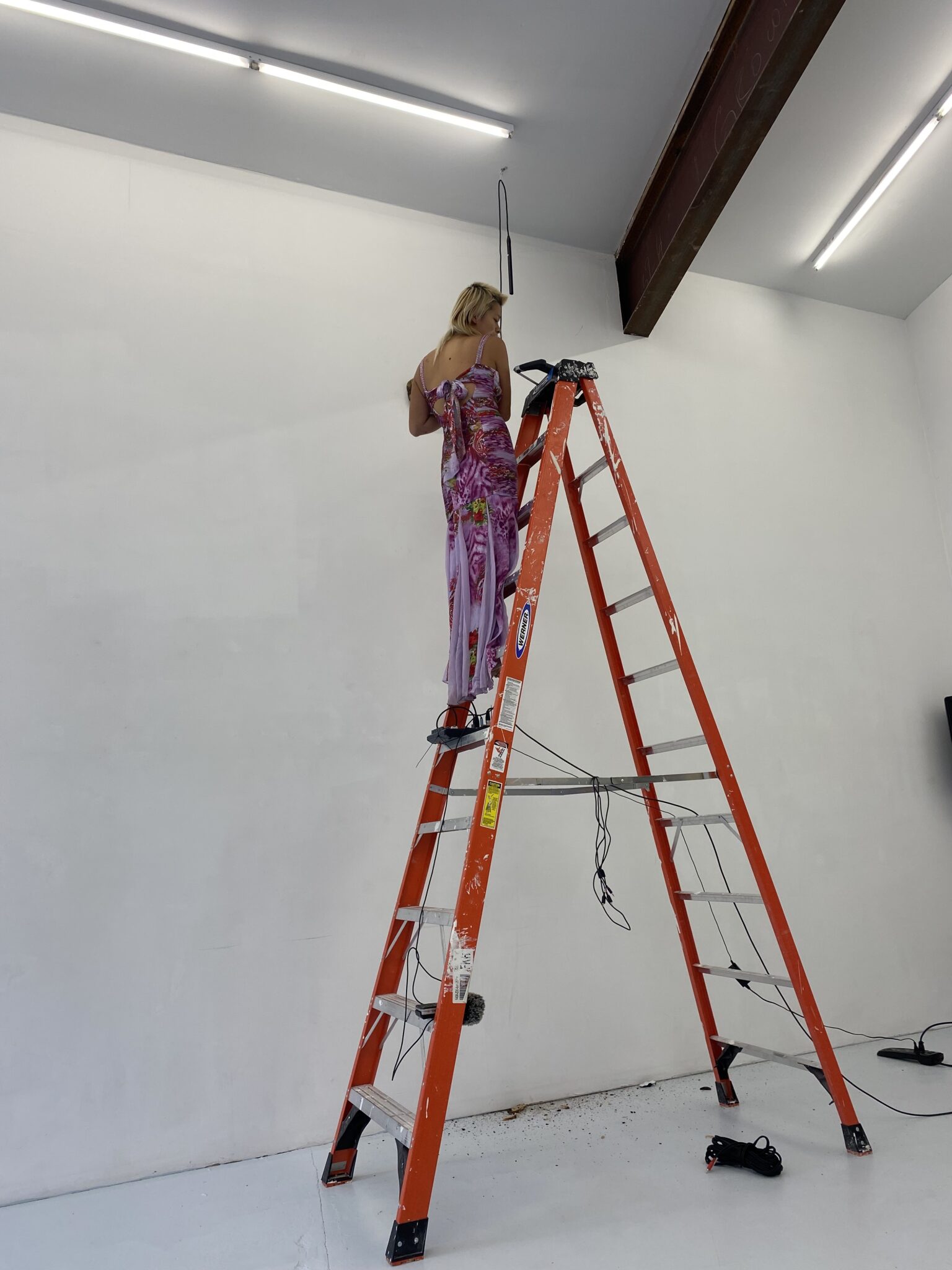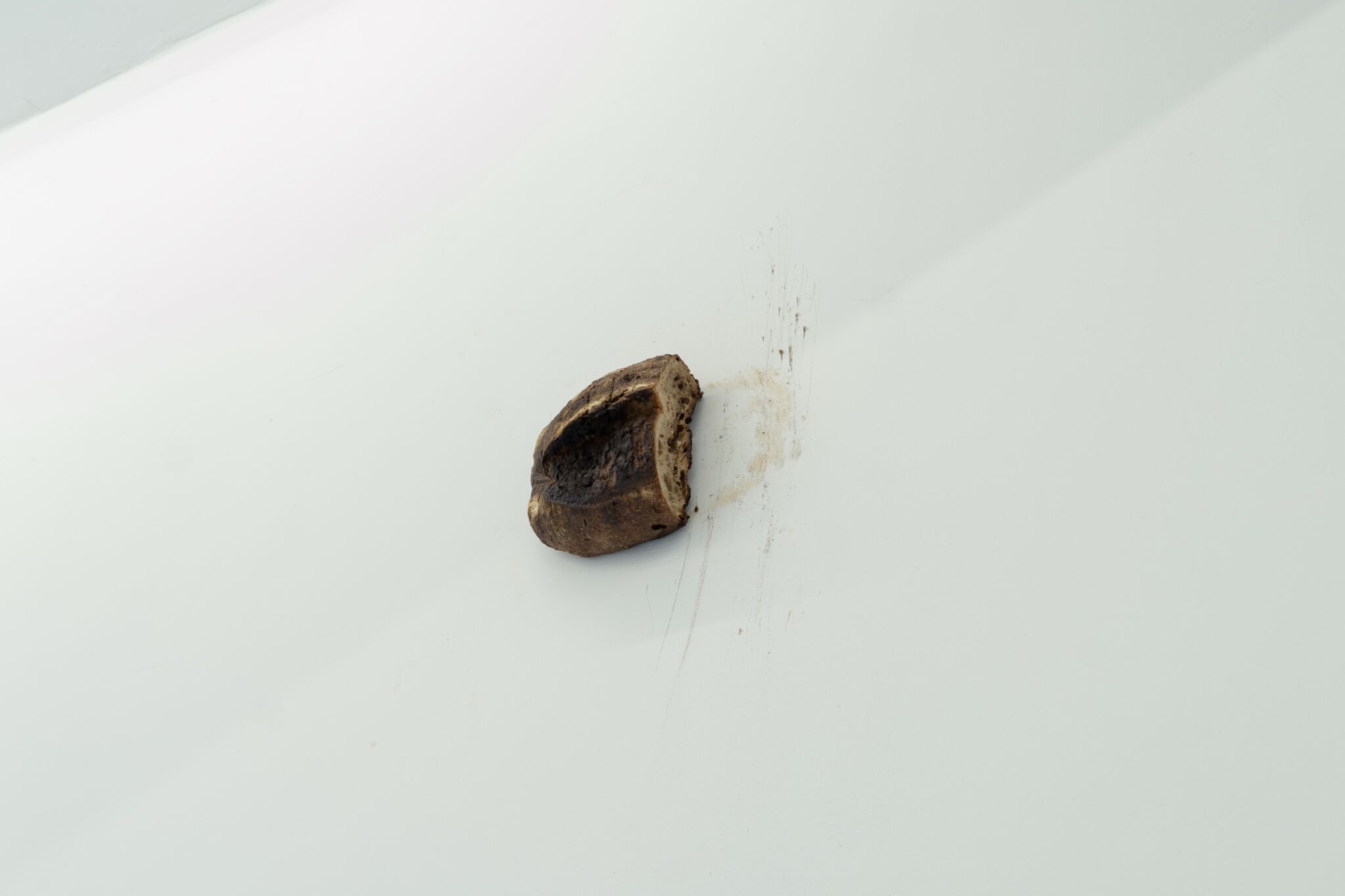Climate Control
26 October 2023
Jasmine Zhang’s Toast Acts have left two loaves of bread around the gallery. The first is a full loaf to your right upon entering (for this moment). It has been charred, a perfectly petrified loaf, entirely blackened. The second is only half a loaf, screwed through its crust to the top left of the front room. Next to it, saw marks and a crescent of oil have marred the wall where the now-missing half used to be. On October 26th, Jasmine climbed a ladder and, wailing, cut the loaf in half to the ears of an audience in an absurdist anti-act. The work was then re-performed in private to a microphone that captured the second unseen severance which has since been logged on Soundcloud.
Breaking bread is a symbol of solidarity with one’s neighbor – a sharing of resources. This bread is from Tartine, with sites splitting the Mission neighborhood around us. The tasty loaf is $13.75 and it, along with the promise of other loaves, baguettes, cookies, and fresh-baked accouterments draws long lines daily to the corners of Guerrero / Alabama and 18th streets.
A friend of mine, artist Kyle Bellucci Johanson introduced me to a work by Lúcia Prancha titled Bread Story about a year ago. In it, Prancha explores a never-produced play written by Bertolt Brecht (perhaps his first upon moving to Los Angeles after being exiled from Germany in 1941, and never produced because of his active socialist politics and the Hollywood blacklist of the time) titled The Bread-King Learns to Bake Bread. The artist uses the structure of the screenplay, a socialist drama of bread making, to film –in the fashion of epic theater– the production line of Los Angeles-based baker Roxana Jullapat’s kitchen.
Sometimes you have to make something epic, something that refuses, something absurdist, Brechtian, to describe back to the world, how momentous the quotidian is, and how it is within the quotidian that ‘the momentous’ often happens. Italian journalist and novelist Italo Calvino has written, “Only a certain prosaic solidity can give birth to creativity: fantasy is like jam; you have to spread it on a solid slice of bread. If not, it remains a shapeless thing, like jam, out of which you can’t make anything.” Jasmine, as Nico first told me, needed to make something that embodied frustration. Perhaps the frustration of being in a jammy city, or country, that increasingly appears to be structured without Calvino’s solid slice; for a place whose reputation is that of somewhere that isolates– lining blocks with lines for bread but not for civil aid in a climate of increasing despair. No matter San Francisco’s historic and ongoing community commitment to available civil services. The bread is also delicious, and the bakery is also lovely.
It is a punk act, one of humor which also isolates, to rearticulate anger in camaraderie: incinerating a loaf of bread and displaying its in-tact charred remains, slicing it against a microphone while moaning through cuts. The fantasy of the urban “good life” isn’t sound if its structures crack beneath it, as they are here, and are in much of the country as growing disparity continues to reveal these things. It also isn’t on the artist to be or create these solutions in individuality, moreover it’s an impossible myth that any one person could (or would, or should).
I spent one summer working at a gallery in New York where old city walls let the smells and sounds of those living within the building the gallery occupied seep in and inhabit our space as well. Intermittently that summer the other girl I worked with and I would smell the toasting of bread, but never at the same time. She told me, the first time it happened, that when women smell bread toasting it can be symptomatic of an on-coming stroke and so for a whole season one tenant’s afternoon toast somewhere within the walls of our building was her and I’s hypochondriatic worry that we were both about to lose our bodies.
Emily Small
Throughout the course of the exhibition, Emily Small will be having an ongoing conversation in time and space with works and artists as they emerge and recede.
The Garden of Eden is an exhibition and an ecosystem. It is a Paradise Garden. It is thinking about how to be in sync with the world and each other. It is theater. It is absurd. It is a heterotopian imaginary in process. It is medicinal. Grow what you care about.




